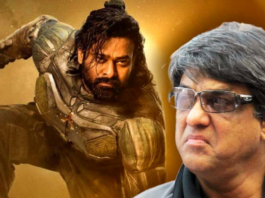Sharmin Segal: Rising Talent Amid Controversy
Sharmin Segal on Criticism, Context, and Calm: Navigating Fame After Heeramandi
In the age of instant opinions and viral snippets, public perception can shift faster than facts. Actor Sharmin Segal experienced this reality firsthand following the release of Heeramandi. In a series of interviews conducted in June 2024, Segal addressed the intense online reactions to her performance and her off-screen presence, offering clarity, reflection, and a measured perspective on navigating sudden attention.
Rather than reacting defensively, Segal chose to speak thoughtfully about the difference between constructive criticism and personal labeling, the impact of social media narratives, and the importance of mental well-being in a hyper-connected world.
Responding to the Wave of Online Criticism
Sharmin Segal acknowledged that audiences have every right to express opinions about performances. Feedback, she noted, is part of an actor’s professional growth. However, she drew a clear line between critique of work and assumptions about character.
According to Segal, much of the online conversation moved away from performance-based analysis and veered into personal judgments. Short clips, removed from their original context, became the basis for sweeping conclusions. She described this shift as unfair and emotionally taxing, especially when narratives are formed without full understanding.
Her approach to handling this phase was intentional. She focused on protecting her mental space by disengaging from speculative commentary and paying attention only to feedback that offered insight rather than accusation.
Addressing Allegations About Her Demeanor
One of the most discussed aspects of the online reaction centered around claims that Segal appeared dismissive or arrogant in interviews. Responding to this directly, she clarified that these impressions were based on isolated moments edited without context.
Segal emphasized that her interactions were misunderstood and that the tone of conversations was misrepresented once reduced to short clips. She explained that what may appear abrupt in a viral video often lacks the surrounding dialogue that gives it meaning.
By addressing the issue calmly, she reinforced a broader point: context matters, especially in public discourse.
Setting the Record Straight on Co-Star Relationships
To counter speculation about strained professional relationships, Sharmin Segal openly spoke about her rapport with her colleagues, including Aditi Rao Hydari and Richa Chadha.
She clarified that a widely circulated interview segment—often described online as a “roast”—was misunderstood. According to Segal, the exchange was lighthearted and mutual, not dismissive or disrespectful. She also shared that Aditi Rao Hydari checked in on her during the period of intense online scrutiny, offering reassurance and support.
These moments, she said, reflected genuine camaraderie rather than conflict, underscoring how easily public narratives can diverge from reality.
Gratitude for Support Systems
Throughout her interviews, Segal repeatedly expressed appreciation for the people who stood by her—family, colleagues, and her professional team. She acknowledged that having a strong support system helped her stay grounded when online discussions became overwhelming.
Instead of isolating herself, she leaned into these relationships, choosing conversation over speculation. This support, she noted, played a crucial role in helping her maintain perspective during a challenging phase of visibility.
Her Honest Relationship with Her Own Work
Interestingly, Sharmin Segal revealed that she watched Heeramandi only once. The reason was not disinterest, but self-awareness. She admitted that repeatedly revisiting her performance tends to make her overly critical of herself.
This candid admission resonated with many viewers, as it highlighted a common creative struggle—the balance between self-evaluation and self-compassion. For Segal, growth comes from reflection, not fixation.
Social Media, Sudden Fame, and Finding Balance
The attention following Heeramandi introduced Segal to a new level of visibility. While she acknowledged that the volume of attention can feel overwhelming, she made a conscious effort to focus on the appreciation she received for her character, Alamzeb.
She explained that social media amplifies extremes—both praise and criticism—but does not always represent the full spectrum of audience response. By centering herself on messages of encouragement, she avoided being consumed by negativity.
Her approach reflects a growing awareness among public figures: online engagement must be intentional, not reactive.
Advocating for Empathy in Digital Conversations
A recurring theme in Segal’s interviews was her hope for more kindness and empathy in online spaces. She urged audiences to consider context before forming opinions and to recognize that public figures are individuals navigating real emotions.
She did not call for the absence of criticism, but for balance. Constructive dialogue, she believes, benefits both artists and audiences. Personal attacks, on the other hand, rarely lead to understanding.
Her message was forward-looking: as digital platforms continue to shape public conversation, empathy should evolve alongside technology.
Learning, Growing, and Moving Ahead
Sharmin Segal described this phase of her career as a learning experience. The visibility brought new challenges, but also new insights into resilience, communication, and self-awareness.
Rather than letting the moment define her, she is using it to refine how she engages with her craft and the world around it. She remains focused on meaningful work, personal growth, and staying true to her values.
When it comes to young talent in Bollywood, Sharmin Segal is a name that stands out. Known for her role as Alamzeb in Sanjay Leela Bhansali’s Heeramandi: The Diamond Bazaar, which premiered on Netflix on May 1, Segal has been the subject of significant discussion and scrutiny. Her performance sparked a mix of reactions, with some critics labeling her acting as “expressionless.” But beneath the surface, Segal’s journey reveals a tale of resilience, intense preparation, and commitment to her craft. In a recent interview with News18, she offered insights into her experience and how she navigated the criticism that followed her high-profile role.
Sharmin Segal: Early Beginnings, High Expectations, and the Journey to Heeramandi
Every actor’s journey begins long before the spotlight finds them. For Sharmin Segal, that journey was shaped by early exposure to cinema, disciplined learning, and a conscious effort to step out of familiar shadows. While her recent appearance in Heeramandi introduced her to a wider audience, her path to that moment has been layered with preparation, pressure, and persistence.
In an industry known for fierce competition and constant comparison, Segal’s story reflects the realities of entering Bollywood with a famous surname—and the determination required to build an identity beyond it.
Early Beginnings: Growing Up Around Cinema
Sharmin Segal grew up in an environment where films were not just entertainment, but a serious craft. Surrounded by conversations about storytelling, performance, and visual detail, she developed an appreciation for cinema early in life.
A significant influence in her journey has been her uncle, Sanjay Leela Bhansali, one of Indian cinema’s most visually distinctive directors. Observing his dedication to detail, discipline on set, and emotional depth in storytelling gave Segal early insights into the demands of acting.
However, familiarity with filmmaking did not translate into ease. If anything, it raised the bar. Expectations were higher, scrutiny sharper, and comparisons inevitable. From the beginning, Segal understood that appreciation would have to be earned—not assumed.
Learning the Craft Before Chasing Recognition
Rather than rushing into visibility, Sharmin Segal focused on understanding acting as a discipline. She observed, learned, and prepared quietly, aware that longevity in cinema requires more than opportunity.
Her early years were about absorbing the nuances of performance—how emotions are conveyed subtly, how characters are built from the inside out, and how restraint can be as powerful as expression. This grounding would later shape her choices on screen.
For Segal, preparation was not optional. It was essential.
Sharmin Segal’s Entry into Bollywood
Sharmin Segal made her film debut with Malaal in 2019. Directed by Mangesh Hadawale and co-produced by Sanjay Leela Bhansali, the film marked her formal entry into Bollywood.
She portrayed Astha, a young woman navigating emotional uncertainty and personal growth. The role required vulnerability and emotional sincerity, especially for a first-time performer. Audience and critical responses were mixed, but the project became an important learning experience.
Rather than focusing on immediate validation, Segal viewed Malaal as a foundation—an opportunity to understand the emotional demands of acting under real-world conditions.
Lessons from a First Film
A debut film often becomes a testing ground, and for Sharmin Segal, Malaal served exactly that purpose. It introduced her to the realities of performance pressure, public opinion, and the discipline required to stay grounded when reactions vary.
She gained insight into how characters are perceived versus how they are intended, and how actors must adapt without losing authenticity. These lessons proved valuable as she prepared for more complex roles later in her career.
In hindsight, the experience shaped her resilience more than her reputation.
The Reality of Being a “Star Kid”
Being related to a celebrated filmmaker comes with both access and accountability. Sharmin Segal has spoken openly about the dual reality of this position. While her background provided exposure to cinema, it also brought constant comparison and skepticism.
The term “star kid” often carries assumptions—about ease, entitlement, and advantage. Segal’s journey reflects the less discussed side of that label: the pressure to justify every opportunity and the need to work harder to be taken seriously.
For her, the challenge was not entering the industry, but staying relevant within it.
Proving Individual Identity in a Competitive Industry
Bollywood is an industry where perception moves quickly and labels stick easily. Sharmin Segal has been aware that carving a distinct identity would require patience and consistent effort.
She has chosen to focus on growth rather than noise, learning from each experience and refining her craft. Instead of chasing rapid visibility, she has aimed for roles that allow her to evolve as a performer.
This long-term approach reflects an understanding that credibility is built over time, not overnight.
Heeramandi: A New Chapter of Growth
Heeramandi marked a turning point in Segal’s career. The series offered her a platform to showcase maturity, restraint, and emotional layering—qualities that develop with experience.
Set in a richly detailed world, the project demanded discipline and nuance. For Segal, it was an opportunity to demonstrate growth since her debut and to engage with a character that required internal strength rather than overt dramatics.
The series also placed her under intense public attention, bringing both appreciation and critique. How she responded to that attention became part of her evolving narrative.
Navigating Expectations and Public Scrutiny
With Heeramandi, Sharmin Segal found herself at the center of conversations about performance, legacy, and individuality. Rather than avoiding the discussion, she acknowledged it, choosing reflection over reaction.
She recognized that expectations will always exist, especially given her background. What matters, she believes, is staying committed to learning and maintaining perspective amid opinions.
This mindset has helped her navigate scrutiny without losing focus.
Looking Ahead: Growth Over Speed
Sharmin Segal’s journey so far reflects a measured approach to a demanding industry. She is not racing toward constant visibility, but building toward credibility.
Her focus remains on roles that challenge her, stories that offer depth, and collaborations that encourage learning. Each project, she believes, should contribute to growth rather than just presence.
In an industry that often rewards immediacy, her patience stands out.
A Journey Still Unfolding
Sharmin Segal’s path to Heeramandi is not a shortcut story—it is one of preparation, pressure, and persistence. From growing up around cinema to stepping into the industry with Malaal, and later evolving through a demanding series, her journey reflects effort behind opportunity.
She continues to work toward defining herself beyond labels, choosing progress over perfection. As her career unfolds, her story serves as a reminder that identity in cinema is not inherited—it is built.
And for Sharmin Segal, that building process is very much in motion.
The Heeramandi Controversy: Embracing Criticism and Growth

Sharmin Segal on Playing Alamzeb in Heeramandi: Preparation, Perception, and Protecting Peace
When Heeramandi premiered, it arrived with grand expectations—lavish visuals, layered storytelling, and a cast tasked with bringing complex characters to life. For Sharmin Segal, the role of Alamzeb was more than just another project. It was a defining opportunity in a large-scale production that demanded emotional nuance and historical depth.
Yet, along with visibility came intense scrutiny. The conversation around her performance quickly grew louder than anticipated, placing her at the center of online debates. Instead of retreating, Segal chose to respond with reflection, clarity, and a renewed focus on her craft.
Alamzeb: A Character Built on Restraint and Complexity
Alamzeb in Heeramandi is not written as a loud or flamboyant personality. She is measured, composed, and emotionally guarded. For Sharmin Segal, portraying such a character required restraint rather than overt dramatization.
In interviews, Segal explained that Alamzeb’s journey is one of internal growth. The character navigates shifting emotions quietly, with dignity and introspection. This subtlety, however, became a point of discussion among some viewers, who described her portrayal as “expressionless.”
The label surprised Segal. From her perspective, the stillness was intentional. She approached Alamzeb as someone who communicates through controlled emotion rather than exaggerated reactions.
Acting, she emphasized, is not always about visible intensity—it can also be about what remains unspoken.
Facing Unexpected Backlash
No actor enters a project expecting universal praise, but the scale of online criticism caught Segal off guard. Social media platforms amplified commentary rapidly, turning performance analysis into trending discussions.
While she acknowledged that audience opinions are valid, she also noted that some feedback blurred the line between critique and personal judgment. The intensity of scrutiny highlighted how digital spaces can magnify reactions far beyond initial expectations.
For an actor still building her career, the experience was both challenging and instructive.
Disabling Instagram Comments: A Step Toward Self-Care
As conversations grew more intense, Sharmin Segal made the decision to disable comments on her Instagram posts. The move sparked its own wave of reactions, but she later clarified that it was a conscious act of self-care.
She described the choice as setting a boundary—an effort to protect her mental well-being while continuing to work and grow professionally. In today’s entertainment landscape, where social media engagement is constant, creating distance can be necessary for balance.
Her decision reflects a broader trend among artists who recognize that digital accessibility must be managed thoughtfully. Engagement is important, but so is peace of mind.
Preparing for Alamzeb: Research and Discipline
Behind the scenes, Segal invested significant time preparing for Alamzeb. In conversations with media outlets, she detailed the layered approach she took to understand the character’s world.
The process included consultations with Sanjay Leela Bhansali, known for his meticulous attention to detail. Discussions about emotional tone, body language, and historical context shaped her performance choices.
She also immersed herself in language work, studying Urdu diction and cultural references to ground her portrayal in authenticity. Historical research played a role as well, helping her understand the social and emotional framework of the era depicted in Heeramandi.
For Segal, preparation was not superficial. It was rigorous and deeply personal.
Subtlety in Acting: A Different Perspective
One of the central debates surrounding her performance centered on expression. Critics felt her facial reactions were minimal. Segal, however, believes that subtlety can be powerful when understood in context.
Alamzeb’s personality, she explained, is shaped by restraint. Her emotions are internalized rather than displayed openly. This interpretation guided Segal’s choices—controlled movements, measured dialogue delivery, and quiet intensity.
Such performances can divide opinion. Some viewers connect deeply with nuance; others prefer overt emotional shifts. Segal’s takeaway has been that interpretation is inherently subjective.
Learning to Navigate Public Expectations
For actors early in their careers, public expectation can feel overwhelming. Heeramandi placed Segal on a larger stage than ever before, exposing her work to a global audience.
She has acknowledged that with bigger platforms come bigger conversations. Rather than resisting that reality, she has chosen to learn from it. Constructive feedback, she says, is valuable. It highlights areas of growth and encourages refinement.
At the same time, she has learned not to let external narratives define her self-worth. The balance lies in listening without absorbing negativity.
Growth Through Experience
Every project shapes an artist differently. For Sharmin Segal, Heeramandi became both a professional milestone and a personal lesson in resilience.
The scrutiny taught her the importance of perspective. Praise and criticism, she has realized, are both temporary. What remains constant is dedication to improvement.
She continues to view acting as a long-term journey. Each role adds experience, sharpens awareness, and deepens understanding of audience expectations.
The Broader Conversation About Social Media and Performance
Segal’s experience also contributes to a wider industry conversation: how social media shapes perception of performance. Viral clips often detach scenes from narrative arcs, influencing opinions without full context.
Actors today must navigate not just scripts and cameras, but digital commentary cycles. Sharmin Segal’s response—measured, composed, and boundary-focused—illustrates one way of managing that reality.
Rather than escalating debates, she chose reflection.
Looking Ahead: Evolving with Intention
Despite the mixed reactions, Sharmin Segal remains committed to evolving as a performer. She sees Heeramandi not as a setback or triumph, but as a stepping stone.
Her focus is on future projects that challenge her range and allow deeper exploration of character psychology. She understands that growth often comes from discomfort—and that feedback, when filtered thoughtfully, can strengthen craft.
In an industry where perception shifts quickly, consistency of effort becomes the anchor.
Sharmin Segal’s Personal Reflections on the Industry

Sharmin Segal Opens Up on Fame, Criticism and Finding Her Own Voice After Heeramandi
In an industry where glamour meets relentless scrutiny, Sharmin Segal is discovering what it truly means to grow under the spotlight. From her debut to her recent performance in Heeramandi: The Diamond Bazaar, Sharmin’s journey has been anything but ordinary. With intense public attention, conversations around nepotism, and online criticism, the young actor has faced it all—yet she remains focused on evolving as a performer.
Here’s a closer look at Sharmin Segal’s journey, her preparation for Heeramandi, and her vision for the future.
A Star Born Into Cinema – But Determined to Carve Her Own Path
Sharmin Segal grew up surrounded by cinema. As the niece of acclaimed filmmaker Sanjay Leela Bhansali, storytelling and artistic excellence were part of her everyday environment. Watching Bhansali’s meticulous approach to filmmaking shaped her understanding of craft from a young age.
However, growing up in a film family comes with a double-edged reality. While opportunities may open doors, expectations rise just as quickly. Sharmin has consistently emphasized that while mentorship is valuable, success in Bollywood ultimately depends on performance and audience connection.
She understands a hard truth: lineage might get you noticed, but it cannot make the audience applaud.
From Malaal to Heeramandi: The Evolution of an Actor
Sharmin made her Bollywood debut with Malaal, directed by Mangesh Hadawale and co-produced by Bhansali. Her portrayal of Astha introduced her to audiences and gave her firsthand experience of the emotional demands of acting.
While reviews were mixed, the film became an important stepping stone. It helped her understand the discipline required to survive in the industry. Every performance, positive or critical, became a learning opportunity.
Fast forward to 2024, and Sharmin stepped into one of the biggest productions of her career—Heeramandi.
Playing Alamzeb in Heeramandi: A Defining Moment
In Heeramandi: The Diamond Bazaar, which premiered on Netflix on May 1, Sharmin portrayed Alamzeb—a character marked by grace, restraint, and quiet emotional complexity.
The role demanded more than surface-level acting. It required cultural immersion, language refinement, and emotional depth. Sharmin revealed in interviews that she underwent rigorous preparation:
- Studied Urdu diction
- Participated in dance training
- Conducted historical research
- Engaged in detailed character discussions with Bhansali
Her preparation extended beyond technical training. She sought inspiration from the legendary Meena Kumari, particularly her performance in Pakeezah. Sharmin watched the classic film multiple times to understand Meena Kumari’s restrained style—what she described as an expression of “nothingness” that still conveyed profound emotion.
That’s not casual preparation. That’s dedication.
The “Expressionless” Debate: Understanding Audience Perception
When Heeramandi premiered, Sharmin found herself at the center of intense online discussion. Some viewers labeled her performance as “expressionless,” a criticism that quickly gained traction on social media.
But here’s the question worth asking: Is subtlety always understood in a loud digital world?
Sharmin has explained that Alamzeb was written as a dignified and internally conflicted character. Her approach was intentionally restrained. She believes acting is not always about dramatic facial shifts or exaggerated emotion. Sometimes, stillness speaks louder than spectacle.
Of course, audience interpretations vary. That’s part of art. What resonates deeply with one viewer may feel understated to another.
Disabling Instagram Comments: Choosing Mental Well-Being
As criticism intensified, Sharmin made a bold yet increasingly common decision—she disabled comments on her Instagram posts.
In an era where social media amplifies both praise and negativity, setting boundaries can be an act of self-preservation. Sharmin described the move as self-care, a way to maintain mental balance amid overwhelming online chatter.
Young actors today aren’t just performers—they’re constantly accessible public figures. The pressure is relentless. Prioritizing emotional well-being is no longer optional; it’s essential.
And frankly, drawing a line doesn’t signal weakness. It signals awareness.
The Nepotism Conversation: Privilege vs. Performance
No discussion about Sharmin Segal can avoid the nepotism debate. Being related to Sanjay Leela Bhansali naturally places her under a microscope.
Sharmin acknowledges that family connections may open doors. But she also recognizes they do not guarantee acceptance. In Bollywood, sustainability depends on audience support.
Her focus remains clear: earn respect through consistent improvement.
The industry has seen many actors from film families struggle despite strong backing. The audience ultimately decides who stays. Sharmin seems fully aware of this reality—and that awareness may be her greatest strength.
Mentorship and Learning from Bhansali
Sharmin credits Sanjay Leela Bhansali for shaping her artistic discipline. Known for his exacting standards and grand cinematic vision, Bhansali has influenced her understanding of storytelling precision.
But she also makes an important distinction: mentorship is guidance, not a shortcut.
Sharmin aims to absorb lessons while developing her own artistic identity. It’s one thing to be inspired by a master filmmaker; it’s another to stand independently in front of the camera.
Staying Grounded in a High-Pressure Industry
Bollywood is a world where admiration and criticism arrive together. Sharmin openly speaks about the emotional complexity of being a public figure. Fame can elevate—and test—one’s resilience at the same time.
To stay grounded, she maintains a close circle of family and friends. That support system becomes crucial when self-doubt creeps in.
Because let’s be honest—every actor, no matter how confident, feels the weight of public opinion.
Looking Ahead: Exploring Diverse Roles
Sharmin Segal is not content with being defined by a single role. While Heeramandi placed her in a grand historical setting, she has expressed interest in exploring contemporary romance, layered dramas, and even psychological narratives.
Versatility, she believes, is the true measure of growth.
The next phase of her career may involve experimenting beyond period dramas. Expanding genres could allow audiences to see new dimensions of her talent.
And sometimes, reinvention is the smartest move in show business.
Sharmin Segal’s Vision: Authenticity Above All
At the heart of Sharmin’s aspirations lies a simple goal—authentic storytelling. She wants to portray characters that resonate emotionally and linger in the minds of viewers.
She understands that building credibility takes time. Careers aren’t defined by a single performance but by consistent evolution.
Her journey so far reflects resilience, introspection, and a willingness to learn publicly—something not every young actor is prepared to do.
Amidst Trolls and Tribulations, Sharmin Segal Finds Strength in Support and Self-Reflection

Sharmin Segal on Self-Reflection, Online Criticism, and Choosing Growth After Heeramandi
In today’s fast-moving entertainment landscape, public reactions can shape narratives overnight. Few understand this reality better than Sharmin Segal, who found herself at the center of intense discussion following her performance as Alamzeb in Heeramandi: The Diamond Bazaar. As conversations around her role grew louder across social platforms, Sharmin chose an approach that is both honest and introspective—facing the criticism head-on while staying anchored in self-growth.
This article takes a closer look at how Sharmin Segal is navigating feedback, self-doubt, and audience expectations, all while laying the foundation for a long-term career in Bollywood.
Confronting Criticism in the Public Eye
Sharmin Segal has never shied away from acknowledging that the backlash surrounding Heeramandi affected her deeply. In recent interviews, she spoke candidly about the emotional weight of seeing her performance dissected online. While criticism is an inevitable part of an actor’s journey, the scale and speed of digital reactions can be overwhelming—especially for someone still early in their career.
What makes Sharmin’s response noteworthy is her willingness to admit vulnerability. She has shared that she tends to watch her work repeatedly, often being far more critical of herself than anyone else could be. That inner voice, she admits, can be tough. When combined with external commentary, the experience becomes emotionally demanding.
Yet, rather than retreating completely, Sharmin chose reflection over resistance.
Self-Criticism: A Double-Edged Sword
Every performer evaluates their own work, but Sharmin has openly stated that she can be her own toughest judge. Watching herself on screen repeatedly, she notices details others might overlook—pauses, expressions, moments she wishes she had approached differently.
This level of self-awareness can be both a strength and a challenge. On one hand, it drives improvement. On the other, it can magnify doubts. Sharmin acknowledges this balance and is learning to manage it with maturity.
In an industry where perfection is often expected instantly, her honesty about self-critique feels refreshingly human.
Filtering Noise, Focusing on Substance
Online discourse rarely comes with filters. Opinions, assumptions, and narratives can spread quickly, often detached from context. Sharmin has recognized this reality and made a conscious effort to separate constructive feedback from unproductive noise.
While some reactions focused on labeling her performance, she chose to look beyond hashtags and trending opinions. Instead, she paid attention to viewers who engaged thoughtfully with her work—those who understood Alamzeb’s restraint and subtle emotional arc.
For Sharmin, learning which voices to listen to has become an essential skill.
Gratitude Amid the Critique
Despite the intense scrutiny, Sharmin Segal has repeatedly expressed gratitude for the support she received from a section of the audience. Many viewers connected with her portrayal of Alamzeb and appreciated the quiet dignity she brought to the character.
These messages, she says, mattered more than numbers or trends. They reminded her why she chose acting in the first place—to tell stories that resonate, even if not universally.
In an environment where negativity often dominates attention, choosing to focus on appreciation takes intentional effort. Sharmin’s decision to do so reflects emotional resilience.
Understanding Alamzeb Beyond Surface Judgments
Sharmin has emphasized that Alamzeb was never meant to be loud or demonstrative. The character exists within a world governed by discipline, tradition, and unspoken emotion. Her performance relied on internalization rather than overt display.
This approach, while artistically deliberate, can divide audiences. Some viewers expect visible emotional shifts, while others appreciate restraint. Sharmin understands this divide and accepts it as part of the storytelling process.
Acting, she believes, is not about pleasing everyone—it’s about honoring the character truthfully.
The Pressure of Expectations
Being part of a large-scale project like Heeramandi naturally brings heightened expectations. Add to that Sharmin’s association with filmmaker Sanjay Leela Bhansali, and the spotlight becomes even brighter.
Sharmin has acknowledged this pressure without defensiveness. She knows expectations come bundled with opportunity. Rather than resisting the conversation, she views it as motivation to work harder, train more, and grow steadily.
Her approach signals an understanding that careers are marathons, not sprints.
Learning to Protect Mental Well-Being
One of the most discussed aspects of Sharmin’s response to online reactions was her decision to limit interaction on social media. This move was not about avoidance but about self-preservation.
In a time when digital presence is often equated with relevance, choosing mental well-being over constant engagement is a conscious decision. Sharmin’s choice reflects a growing awareness among actors about the importance of emotional boundaries.
Taking a step back does not mean stepping away from ambition. Sometimes, it simply means choosing clarity.
Support Systems Matter
Sharmin has spoken about leaning on her family, friends, and professional circle during challenging moments. Having people who offer honest feedback without judgment has helped her maintain perspective.
In an industry where public opinion fluctuates daily, a stable personal support system can make all the difference. For Sharmin, these relationships provide grounding when external narratives feel overwhelming.
No actor grows in isolation, and she openly acknowledges that.
Turning Experience Into Education
Rather than viewing the backlash as a setback, Sharmin Segal treats it as education. Every response, whether positive or critical, offers insight into how audiences perceive performance.
She believes that listening—without losing oneself—is key to longevity. This mindset allows her to absorb lessons while staying true to her artistic instincts.
Growth, she insists, comes from reflection, not reaction.
Looking Ahead With Clarity
Sharmin Segal remains focused on the future. She has expressed interest in exploring a wide range of roles across genres, believing that versatility is essential for evolution as an actor.
Heeramandi may have been a challenging chapter, but it has also been a defining one. It tested her resilience, sharpened her self-awareness, and clarified her priorities.
Most importantly, it reinforced her belief that growth often begins where comfort ends.
Sharmin Segal’s journey after Heeramandi offers a revealing look into the emotional realities of modern stardom. Facing criticism, managing self-doubt, and choosing gratitude over resentment are not easy paths—but they are honest ones.
By focusing on learning rather than labeling, Sharmin is building a foundation rooted in reflection and perseverance. Her story is still unfolding, and like any meaningful narrative, it includes moments of challenge, clarity, and quiet strength.
In an industry driven by instant reactions, Sharmin Segal is choosing something far more enduring—growth with intention.
In her discussion with Instant Bollywood, Sharmin emphasized that the experience of working on “Heeramandi” was transformative. She shared that the role taught her invaluable lessons and contributed significantly to her growth as an actor. Reflecting on her journey, she said, “I am happy with my performance, and have been receiving a lot of love for Alamzeb. It has been a learning experience. I have grown a lot. I knew on the first day of the set that I would be a completely different person after this shoot ended.”
Sharmin Segal on Vulnerability, Resilience and Embracing Insecurities After Heeramandi
In the ever-evolving world of Indian entertainment, actors are constantly balancing artistic ambition with public perception. For Sharmin Segal, her journey through Heeramandi: The Diamond Bazaar became more than just another role—it became a defining chapter in understanding vulnerability, criticism, and creative growth.
While discussions around her portrayal of Alamzeb sparked varied reactions online, Sharmin has chosen to focus on something deeper: the value of embracing insecurity as part of the artistic process.
Vulnerability Is Not Weakness, Says Sharmin Segal
One of the most striking aspects of Sharmin Segal’s recent interviews is her perspective on vulnerability. In an industry that often celebrates confidence and glamour, she speaks openly about insecurity—not as a flaw, but as fuel.
According to Sharmin, insecurity is not something to hide from. It is something to understand. She believes that acknowledging self-doubt allowed her to connect more authentically with Alamzeb, a character defined by innocence, restraint, and emotional depth.
That mindset flips the usual narrative. Instead of pretending to be fearless, she admits to questioning herself. And in doing so, she taps into emotions that make performances layered and relatable.
The Complexity of Playing Alamzeb in Heeramandi
Heeramandi, directed by acclaimed filmmaker Sanjay Leela Bhansali, presented Sharmin with a challenging character arc. Alamzeb is not loud or dramatic. She exists in quiet moments, subtle glances, and restrained emotion.
Sharmin revealed that understanding Alamzeb’s “oblivious innocence” was not easy. There were moments when she questioned the character’s choices and reactions. But then she remembered a crucial piece of advice from a mentor: never judge your character.
That advice changed her approach.
Instead of analyzing Alamzeb from the outside, she chose empathy. She worked to understand the emotional purity that defined the character rather than imposing modern judgment on her.
Connecting to Purity and Emotion
Sharmin described Alamzeb as pure at heart. To portray that innocence authentically, she focused on connecting with the idea of love as something unfiltered and sincere.
For her, the character’s emotional world revolved around simplicity and trust. Sharmin tapped into her own memories of openness and innocence to bring that quality alive on screen.
Interestingly, she shared that she herself carried a certain carefree innocence during filming. While she is detail-oriented by nature—carefully observing practical elements and performance nuances—she also allowed herself to be relaxed and present on set.
That duality became the foundation of her portrayal.
Balancing Details With Big Emotions
Sharmin Segal’s preparation process was meticulous. She is known for paying close attention to small details—body language, pauses, voice modulation, and expressions. But she also understood that overthinking could dilute spontaneity.
So she balanced structure with freedom.
On one hand, she focused on practical precision: diction, posture, rhythm of dialogue. On the other, she tried to remain emotionally fluid, allowing scenes to unfold organically.
This careful combination of discipline and instinct shaped her version of Alamzeb. Even if not universally appreciated, it was deeply intentional.
When Opinions Differ: The Nature of Acting
Acting is inherently subjective. A performance that resonates deeply with one viewer may not connect with another. Sharmin’s experience with Heeramandi reinforced that reality.
While some viewers praised her subtle approach, others questioned it. Instead of dismissing criticism outright, she reflected on it. She understands that feedback—whether positive or critical—is part of the profession.
Her ability to engage with varied reactions without losing confidence in her choices speaks to growing maturity.
Resilience in the Face of Scrutiny
Sharmin Segal’s journey with Heeramandi highlights the complexities actors face in the digital age. Performances are no longer evaluated solely by critics—they are instantly analyzed across social media platforms.
Navigating that environment requires resilience.
Sharmin has demonstrated a willingness to learn rather than retreat. She stands by her portrayal of Alamzeb, acknowledging that she gave the role her full dedication. At the same time, she remains open to growth.
Resilience, in her case, is not about ignoring opinions—it’s about absorbing them without letting them define her identity.
The Role of Mentorship and Guidance
Working under Sanjay Leela Bhansali’s direction added another layer of intensity to the project. Known for his precision and grand cinematic vision, Bhansali expects actors to dive deep into character psychology.
Sharmin credits this environment for pushing her boundaries. The experience sharpened her understanding of nuance and subtle storytelling.
But ultimately, stepping into the character required her own emotional investment. Guidance can shape technique, but authenticity must come from within.
Learning Not to Judge the Character
One of the most important lessons Sharmin shared was about withholding judgment. Early in the process, she found herself questioning Alamzeb’s decisions. But judging a character creates distance. Empathy creates connection.
By choosing empathy, Sharmin unlocked emotional layers she might otherwise have missed. She began to see Alamzeb not as naïve, but as sincere. Not as passive, but as deeply feeling.
That shift transformed her approach and reinforced her belief that vulnerability is essential to performance.
Growth Through Self-Reflection
Sharmin’s openness about insecurity signals a larger evolution in her career. She no longer sees self-doubt as an obstacle. Instead, she treats it as a sign that she cares deeply about her craft.
Self-reflection, she believes, is the foundation of improvement. Every project teaches something new. Every reaction offers perspective.
Rather than chasing instant approval, she appears focused on long-term artistic development.
Looking Forward: Commitment to Craft
Despite mixed reactions, Sharmin Segal remains committed to her journey. She continues to train, observe, and refine her skills. Her goal is not to silence critics overnight but to grow steadily with each role.
Her experience with Heeramandi has strengthened her emotional intelligence as a performer. It has also clarified her priorities—authenticity, empathy, and resilience.
In a competitive industry, those qualities often matter more than momentary trends.
Embracing Feedback: Sharmin on Audience Reactions
Sharmin Segal on Handling Trolling, Embracing Insecurity, and Growing Stronger After Heeramandi
For Sharmin Segal, the journey following the release of Heeramandi: The Diamond Bazaar has been as transformative off-screen as it was on-screen. As conversations around her performance unfolded across digital platforms, Sharmin chose reflection over reaction. Instead of resisting criticism, she leaned into understanding it.
Her composed response to online trolling and mixed feedback has revealed a thoughtful and evolving artist—one who values the audience deeply while staying grounded in self-awareness.
Sharmin Segal on Audience Feedback: “They Have a Right to Speak”
Since the release of Heeramandi, Sharmin Segal has addressed public reactions with remarkable maturity. Acknowledging that feedback ranged from praise to criticism, she emphasized one key belief: the audience matters.
According to Sharmin, viewers are central to any creative journey. She recognizes that when a project reaches millions, opinions will naturally vary. “The audience has a right to say what they want to say,” she shared in an interview. For her, that exchange—between performer and viewer—is part of storytelling itself.
Rather than focusing solely on negative commentary, Sharmin has also highlighted the support she received. Messages of appreciation, encouragement, and admiration poured in from many viewers who connected with her portrayal.
In her view, both positivity and criticism coexist in the same space. And that’s normal.
Being Noticed: A Perspective Shift
One of the most grounded aspects of Sharmin’s outlook is her understanding of visibility. She openly acknowledged that being noticed—regardless of the type of feedback—is significant for a young actor building her career.
In an industry where countless performers strive for recognition, visibility itself can be a milestone. Sharmin sees attention as proof that her work reached people.
That perspective changes the narrative. Instead of asking, “Why are they criticizing?” she asks, “What can I learn from this?”
It’s a subtle shift—but a powerful one.
Constructive Criticism vs. Noise
Sharmin has made it clear that she welcomes constructive criticism. She understands that meaningful feedback helps refine craft. At the same time, she also recognizes that not every comment deserves equal weight.
Engaging with a wide audience inevitably brings diverse opinions. Some viewers connect deeply with subtle performances; others prefer overt emotional display. As an actor, navigating that diversity requires balance.
Sharmin’s willingness to absorb constructive feedback while filtering out unhelpful noise demonstrates emotional intelligence. It shows she’s playing the long game, not chasing instant validation.
Insecurity as a Tool for Growth
Perhaps the most compelling aspect of Sharmin Segal’s recent interviews is her perspective on insecurity. When asked whether insecurity motivates her to work harder, she offered a nuanced response.
Rather than dismissing insecurity as negative, Sharmin described it as a complex but useful emotion. She admitted that insecurity helped her during the process of Heeramandi. It pushed her to question, refine, and improve.
At the same time, she believes insecurity contains volatility. It can make a person vulnerable. But vulnerability, she argues, is not something to fear.
That insight stands out in an industry often associated with outward confidence and polished images.
Vulnerability in a Filtered World
Sharmin pointed out that people today are often uncomfortable with vulnerability. In a world driven by curated perfection, admitting doubt can feel risky.
Yet she believes vulnerability is closely tied to authenticity. Being open about insecurities can actually strengthen self-acceptance. For Sharmin, growth came from understanding her inner dialogue rather than suppressing it.
She explained that thoughts—positive or insecure—cannot always be controlled. Judging oneself for having them only creates more pressure. Instead, she chooses awareness over self-criticism.
That mindset reflects emotional maturity beyond her years.
Becoming More Secure Through Experience
Interestingly, Sharmin shared that after Heeramandi, she feels more secure—not less. The experience of navigating public scrutiny strengthened her confidence.
Facing varied reactions head-on forced her to reassess what truly matters. Instead of chasing approval, she began focusing on improvement.
Growth often happens outside comfort zones. For Sharmin, this chapter served as both challenge and catalyst.
Understanding the Creative Process
Sharmin Segal sees art as inherently subjective. The same performance can evoke admiration in one viewer and criticism in another. That duality is not a flaw in storytelling—it is part of its beauty.
By accepting this reality, Sharmin has embraced a healthier relationship with feedback. She creates for the audience, yes—but she also understands she cannot control individual interpretations.
Her role is to commit honestly to the character. The audience’s role is to respond freely.
That mutual exchange defines the creative ecosystem.
Encouraging a Healthier Conversation Around Insecurity
Sharmin’s openness about insecurity sends a larger message. Rather than treating doubt as weakness, she reframes it as a stepping stone.
She encourages embracing vulnerability instead of hiding it. According to her, true security comes from accepting oneself fully—strengths and insecurities alike.
For young aspiring actors and audiences alike, this perspective offers reassurance. Perfection is not the goal. Growth is.
The Bigger Picture: Resilience in Modern Bollywood
Working under the direction of Sanjay Leela Bhansali in Heeramandi brought immense visibility. With that visibility came intense public conversation.
Sharmin’s response to trolling and mixed feedback reflects a broader shift among emerging actors—prioritizing mental clarity, self-awareness, and emotional balance.
The entertainment industry today is intertwined with social media dynamics. Learning how to engage without being consumed by commentary is a crucial skill.
Sharmin appears to be developing that skill thoughtfully.
Looking Ahead: A Career Rooted in Reflection
As Sharmin Segal moves forward, her focus remains on evolving as a performer. She understands that every project will bring new lessons.
Her journey post-Heeramandi highlights resilience, perspective, and a willingness to grow publicly. Instead of shrinking under scrutiny, she expanded her understanding of herself.
That evolution may ultimately define her career more than any single role.
The response from the industry to Sharmin Segal’s performance has been mixed but supportive. While actors like Sonakshi Sinha and Aditi Rao Hydari have defended her against trolls, Adhyayan Suman advised her to ‘accept reality’ and engage in conversation with the audience. Jayati Bhatia acknowledged the burden of trolling and advised Sharmin to work harder on her future projects.
These varied responses underline the complexities of handling public and professional feedback. Sharmin’s journey through “Heeramandi” has been a significant learning experience, shaping her into a more resilient and introspective artist. Her story is a testament to the challenges and rewards of pursuing a creative career, where each role offers new opportunities for growth and self-discovery.
Conclusion: Sharmin Segal’s Unfolding Legacy
Sharmin Segal’s career is still young, but it is already rich with lessons and experiences that are shaping her into a multifaceted performer. The controversy surrounding her role in Heeramandi highlights the scrutiny that actors face in the digital age, where public opinion is swift and often unforgiving. However, Segal’s approach to her career—marked by introspection, preparation, and a willingness to adapt—indicates that she is in it for the long haul.
As she continues to evolve, Segal’s journey may inspire others in the industry, especially those navigating the dual-edged sword of family legacy and individual identity. Her commitment to improving her craft and staying true to herself sets her apart, making her one to watch in the years to come.
Context Over Clicks
Sharmin Segal’s response to criticism following Heeramandi offers a thoughtful case study in navigating modern fame. By choosing clarity over conflict and reflection over reaction, she has reframed a difficult moment into an opportunity for dialogue.
Her interviews highlight an important reminder for audiences and creators alike: viral moments rarely tell the full story. Context, empathy, and open-mindedness remain essential—both on screen and off.
As Segal continues her journey in the entertainment industry, her willingness to speak honestly and thoughtfully positions her not just as an actor, but as a voice advocating for more mindful conversations in the digital age.
Conclusion: Beyond the Headlines
Sharmin Segal’s portrayal of Alamzeb in Heeramandi sparked conversation—some appreciative, some critical. What stands out, however, is how she chose to respond.
Through preparation, perspective, and prioritizing mental well-being, she turned scrutiny into self-awareness. Her experience underscores a reality of modern acting: performance is only part of the journey; navigating perception is the rest.
As her career continues to unfold, one thing is clear—Sharmin Segal is focused not on labels, but on learning. And in an industry defined by evolution, that mindset may prove to be her greatest strength.
Final Thoughts
Sharmin Segal’s journey post-Heeramandi highlights a larger conversation about fame in the digital age. From intense preparation and artistic ambition to handling online criticism with composure, she is navigating the realities of modern Bollywood in real time.
Is she perfect? No actor is.
Is she learning? Absolutely.
In an industry that demands both talent and thick skin, Sharmin appears committed to growth. Whether audiences embrace her subtle style or continue debating it, one thing is clear—she isn’t backing down.
Sharmin Segal’s perspective on vulnerability offers a refreshing counterpoint to the usual narrative of celebrity perfection. By acknowledging insecurity and embracing empathy, she demonstrates a thoughtful approach to acting.
Her portrayal of Alamzeb in Heeramandi may have sparked debate, but it also revealed her dedication and introspective nature. She chose to stand by her work while remaining open to learning—a balance not every young actor achieves.
As Sharmin Segal continues her journey in Bollywood, one thing is clear: she is building her career not just on opportunity, but on reflection, resilience, and an unwavering commitment to growth.
And sometimes, resilience is the most powerful performance of all.
Frequently Asked Questions (FAQ)
Why Is Sharmin Segal So Famous?
1. Who is Sharmin Segal?
Sharmin Segal is an Indian actor who gained widespread public attention for her work in films and digital series, especially after appearing in a high-profile historical drama released in 2024.
2. What made Sharmin Segal famous?
Sharmin Segal became widely known after playing Alamzeb in Heeramandi: The Diamond Bazaar. The show attracted massive viewership, and her performance sparked strong public discussion, bringing her into the national spotlight.
3. Why did Heeramandi bring her so much attention?
Heeramandi was one of the most talked-about Indian web series of the year due to its grand scale, storytelling, and direction by Sanjay Leela Bhansali. Any actor associated with such a project naturally drew attention, and Sharmin’s role became one of the most discussed.
4. Was Sharmin Segal famous before Heeramandi?
Before Heeramandi, Sharmin Segal had appeared in films such as Malaal (2019). While she was known within film circles, Heeramandi significantly expanded her visibility and introduced her to a much larger audience.
5. Is Sharmin Segal famous because of nepotism?
Sharmin Segal is related to Sanjay Leela Bhansali, which has often been discussed publicly. While family connections may open doors in the industry, her fame largely stems from appearing in a widely watched project that generated extensive public conversation.
6. Why did Sharmin Segal trend so much on social media?
After Heeramandi’s release on Netflix, social media users actively discussed Sharmin’s performance. Mixed opinions—both praise and criticism—led to viral clips, debates, and trending topics, increasing her online visibility.
7. How did Sharmin Segal respond to the attention and criticism?
Sharmin Segal addressed the attention calmly, stating that audience feedback—positive or critical—is part of an actor’s journey. Her thoughtful interviews and mature responses further added to public interest in her personality and career.
8. Did her interviews contribute to her popularity?
Yes. Sharmin Segal’s candid interviews about vulnerability, insecurity, and handling public scrutiny resonated with many people. Her honest perspective helped audiences connect with her beyond just her on-screen work.
9. Why do people keep talking about Sharmin Segal even after the show?
The combination of a major streaming release, ongoing discussions about performance styles, and her reflective responses has kept her in the news cycle. Public curiosity often extends when an actor becomes part of a larger cultural conversation.
10. Is Sharmin Segal expected to remain famous in the future?
Sharmin Segal has indicated a strong commitment to growth and learning as an actor. Whether her fame continues will depend on her future roles, performances, and how she evolves in the industry—but her current recognition has firmly placed her on the public radar.
Quick Summary
Sharmin Segal is famous today because of her role in a highly visible, widely discussed web series, her association with a celebrated filmmaker, and the intense public conversation surrounding her performance. Visibility, discussion, and thoughtful engagement with audiences have all contributed to her growing prominence.
Follow our news channel for the latest updates on movie, Housefull 5, and Bollywood entertainment news.
Subscribe to our news blog for the latest updates on Housefull 5, box office predictions, film reviews, and entertainment news.
Discover more from currentnewschannel.com
Subscribe to get the latest posts sent to your email.













